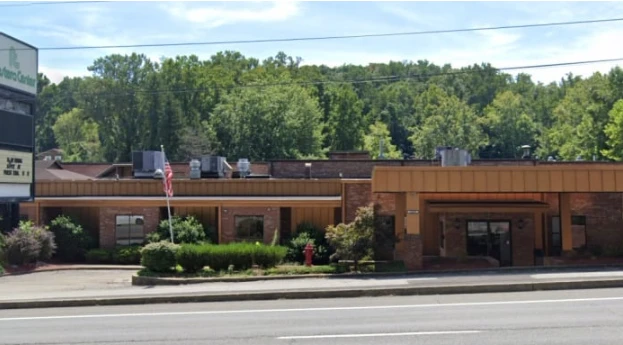Situated in Huntington, West Virginia, Prestera Center at Pinecrest is a comprehensive treatment center for mental health and drug use disorders that aims to assist both men and women on their road towards recovery. Prestera guarantees that every person, irrespective of their financial circumstances, has access to a comprehensive range of services, ranging from early intervention to long-term rehabilitation, since it is a non-profit organization.
The facility offers a variety of treatment alternatives, such as medication-assisted therapy (MAT), short- and long-term residential programs, outpatient treatments, and medically supervised detoxification. Prestera offers residential crisis stabilization programs that include medically supervised detox treatments. FDA-approved drugs are used by doctors and nurses to control withdrawal symptoms while constant vital sign monitoring ensures client safety. It is strongly advised that clients go into one of the residential treatment programs for additional assistance throughout their recovery after detox.
Prestera Center residential programs provide round-the-clock care and generally last three to six months. These programs aim to provide a supportive setting where clients may get individual and group treatment, case management, family therapy, and psychiatric assessment. The 24-hour care guarantees that patients get the mental and physical assistance they need throughout the duration of their recuperation.
Prestera Center provides outpatient treatment for those who do not need full-time assistance. Weekly, bi-monthly, or monthly delivery of these services is contingent upon the client's stage of rehabilitation. For patients with co-occurring mental health and drug use problems, intensive outpatient therapies are also offered, offering specialized assistance for those managing multiple conditions.
Medication-assisted therapy (MAT), especially for opioid addiction, is a specialty of Prestera Center. To aid with withdrawal symptoms, FDA-approved drugs are given, and clients must take part in peer support, frequent drug testing, and professional treatment services. MAT may be used for six to twelve months, with the possibility of an extension in certain circumstances. Referrals to other Prestera sites guarantee that customers get the required treatment in the event that MAT is not accessible at the Pinecrest location.
Individuals with dual diagnoses, or those managing both mental health and drug use issues, are the center's specialty. The possibility of a successful long-term recovery is increased by Prestera Center's combined treatment of both illnesses.
Prestera Center, the area's premier provider of treatments for mental health and drug abuse disorders, is dedicated to providing high-quality care to anybody who needs it. They are able to provide a comprehensive and integrated approach to rehabilitation because of their experience treating co-occurring diseases.
Being CARF-accredited shows that Prestera Center at Pinecrest is dedicated to provide the best possible care for patients requiring addiction treatment and mental health services. The facility also has a complete West Virginia license, which guarantees that patients get expert, government-regulated services that put patient safety and high-quality treatment first.
Prestera - Pinecrest Complex Information
Accreditations
-
Commission on Accreditation of Rehabilitation Facilities (CARF)
CARF accreditation is a prestigious recognition for rehabilitation and human service organizations. It signifies that an organization meets high-quality standards and is committed to providing top-level care. CARF conducts rigorous evaluations to ensure compliance, enhancing an organization's credibility and reassuring clients and funders of exceptional service quality. This accreditation promotes excellence and continual improvement in the rehabilitation and human services field.

-
State department of health
Government agencies issue State Licenses, which grant rehabilitation organizations permission to conduct their operations lawfully within specific geographic regions. Licenses needed to operate are typically determined by the type of rehabilitation program offered by the facility and its physical location.

Additional Locations
Find the best treatment options. Call our free and confidential helpline today!




